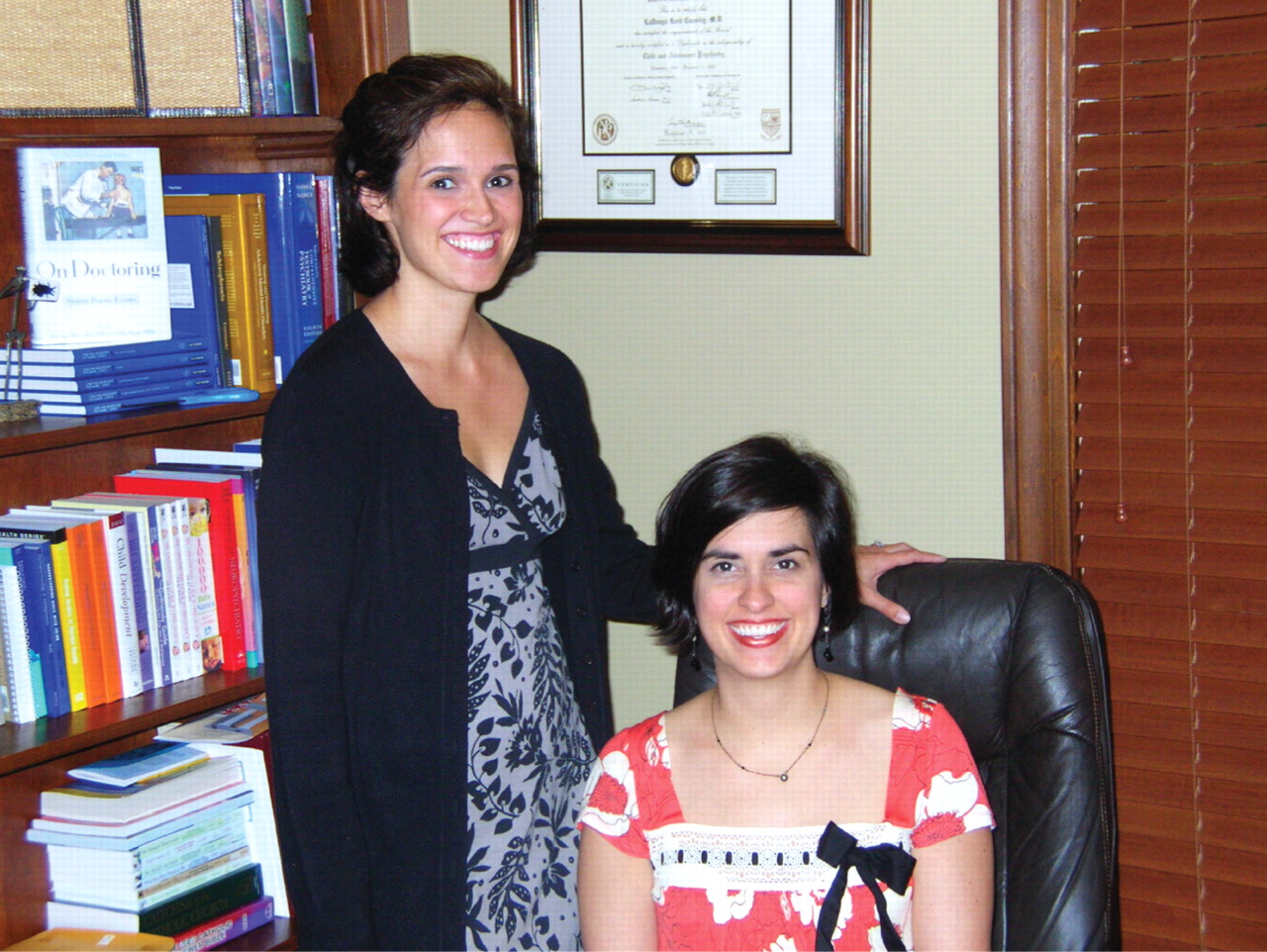Psychiatrist Dehra Glueck, M.D., lives in Ballwin, Mo., just outside St. Louis, but all her patients are in Arizona.
No, Glueck doesn't jet down to the desert Southwest each day. She just walks into a room in her house and switches on the Internet-based telepsychiatry system that is the core of her practice.
Until recently, telepsychiatry has been the realm of large medical centers and universities, but that is changing.
Small private group practices like Glueck's Adapt Psychiatric Services are jumping into the pool, drawn by a combination of lower technology costs, payment arrangements that cover time and capital costs, good patient outcomes and acceptance, and perceived lifestyle advantages for psychiatrists.
“Kids take to the two-way video system right away,” said Glueck, the CEO of Adapt, who is triple-boarded in pediatrics, adult psychiatry, and child psychiatry, in an interview. With a new patient, she zooms out the camera lens to show her home office, then describes to the child what he or she is wearing and doing. “They think that's so cool.”
Long-distance telepsychiatry also provides a level of privacy for both patients and psychiatrists, avoiding the awkward encounters on the street that bedevil practicing psychiatry in small towns or rural areas.
“They're not going to see me in Wal-Mart, so you can talk about anything,” she said.
Psychiatrists are licensed in the state where they live and in the states where they practice or would like to practice. Glueck said that she and her colleagues have a malpractice insurance provider who is comfortable with telemedicine and provides coverage regardless of state of residence or practice.
Three paths came together to form the road for Glueck's practice, now a single-member, professional limited liability corporation. For a start, she and LaDonya Cassidy, M.D., who now works for Glueck, gained experience with telepsychiatry during their residencies at the University of Kentucky. Glueck also wanted a working life that allowed her more time with her husband and two young children.
Finally, she learned of a behavioral health service with a contract for care in rural areas that wanted to start clinics in small towns but couldn't find doctors to relocate there. She and Cassidy agreed to provide care remotely and installed T1 telephone lines in their homes. A T1 line is a fiber-optic cable that carries about 60 times the data of an ordinary phone line. T1 lines are especially useful for streaming heavy data loads such as live video links.
“A private practice of telepsychiatry is still somewhat unusual, but this is the wave of the future,” Kathleen Myers, M.D., M.P.H., an associate professor of psychiatry at the University of Washington in Seattle, told Psychiatric News. Myers has published several studies on the use of telepsychiatry and is familiar with Adapt and similar practices around the United States.
“These people are very entrepreneurial,” she said.“ Equivalency trials with adult patients have shown no difference in outcomes, although there are no studies comparing telepsychiatric care in remote communities with whatever patients would get from their primary care providers.”
Adapt contracts with clinics, and physicians work on a salaried basis. Besides Cassidy, two other psychiatrists are employed full-time by Glueck's practice and three others are subcontractors. They have a patient base of about 1,300 patients. Most of their work involves direct patient care, including evaluation and follow-up. Other similar practices also use their telepsychiatry systems to train primary care and other providers.
“We use a shared-risk model where the clinics bill for our services,” said Glueck.
“Telepsychiatry is probably more expensive than face-to-face clinical encounters because technological costs go beyond what can be recouped by reimbursement,” said Myers. “Some mental health centers may have to do fundraisers to afford the technology, and others are willing to take the loss as a way to build referral networks.”
Glueck said that Adapt's contracts are structured to cover technology costs.
“Many insurance companies pay for the services, and some of the ones that don't can be contested if the patient is in a rural area without many mental health resources,” said Myers.
Other psychiatrists who want to use telepsychiatry may not be as fortunate as those at Adapt. Some studies show that inadequate reimbursement has slowed the spread of telepsychiatry even after grant-funded trials have shown its ability to improve patient outcomes and increase access.
By now, Adapt has enough experience to guide a clinic that contracts for its services. Adapt provides telemedicine-specific consent forms and electronic health records. It handles the credentialing process for the clinic. It uses a different prescription pad for each clinic, and when a faxed prescription won't do, as in the case of scheduled drugs, it routinely sends an original to the clinic by overnight delivery services.
Adapt outsources the majority of its support services, including information technology, payroll, a 401(k) plan, and employees' health insurance.
The clinical encounter at the remote location is managed by a“ physician extender,” usually a nurse or a behavioral health technician who remains in the room with the patient. “You don't need someone with a lot of heavy professional credentials—just someone with great people skills and organizational skills,” said Glueck.
Each psychiatrist also visits the clinics he or she serves once or twice a year to see the staff and patients, if the latter so desire. Glueck originally thought that face-to-face contacts would be needed more frequently, but it's a measure of the acceptance of telepsychiatry that these visits seem more important to the doctor than the patient, she said.
“Patient-satisfaction studies indicate that patients like telepsychiatry, but psychiatrists seem reluctant to try it,” said Myers. That may be because they're not trained in using it or because it goes against longstanding traditions in the profession.
“If patients come back, I guess they're OK with it,” said Myers. “It does make you think about the nature of the therapeutic relationship though.”
Once psychiatrists become as comfortable with telepsychiatry as patients, however, their choices of where and how to live and practice expand. The seven psychiatrists who comprise Adapt live in Missouri, Kentucky, Texas, and Pennsylvania. They serve patients in Yuma and Casa Grande, Ariz., and in Dallas, Corsicana, Wilmer, and Waxahatchie, Texas.
She and the other psychiatrists break down some of the isolation of private practice by maintaining a “virtual water cooler” where they can use video, e-mail, and instant messaging to catch up with each other, trade information, and consult on questions about patients. Instant messaging permits real-time consults with another doctor in the practice.
There's lifestyle flexibility. One partner lives on a boat and docks it each morning before going to the office. If one of Glueck's patients is a no-show, she can spend a bonus half hour with her 4-year-old and 2-year-old children, who are otherwise looked after by a nanny during the workday.
“People can integrate telemedicine into what they already do and enjoy that flexibility while seeing patients who would otherwise be unable to see a psychiatrist,” she said. “You end up with happy doctors with rewarding practices and happy patients.”

